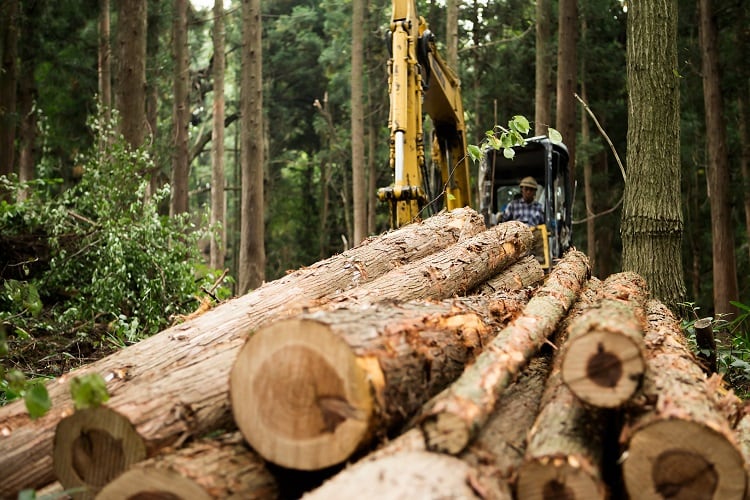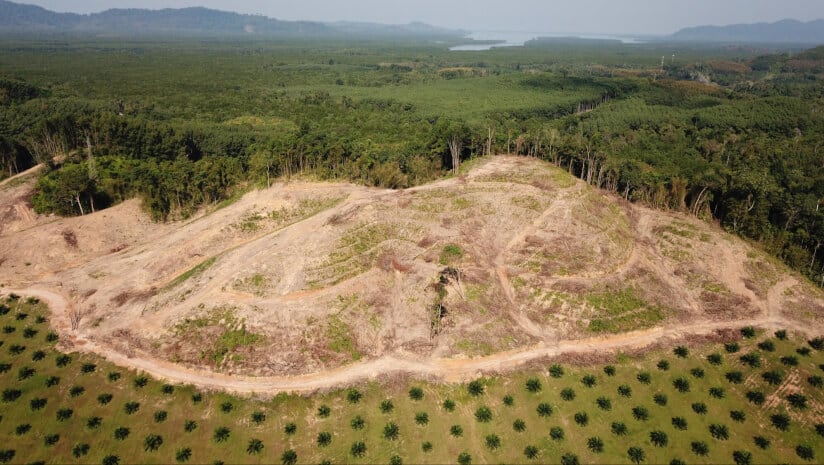The European Union (EU) has come under increasing pressure to postpone the deadline for the implementation of the European Union’s Deforestation Regulation (EUDR) and on Wednesday of last week, it cracked.
“Given the EUDR’s novel character, the swift calendar, and the variety of international stakeholders involved, the Commission considers that a 12-month additional time to phase in the system is a balanced solution to support operators around the world in securing a smooth implementation from the start,” said the European Commission in a statement published on 2 October.
However, the EU was quick to claim the bill itself would not undergo any changes.
“The extension proposal in no way puts into question the objectives of the substance of the law, as agreed by the EU co-legislators.”
But, if the proposal to delay is passed, then the bill will be reopened and could undoubtedly be subject to change.
“The larger concern is whether this delay opens the door to potential amendments to the EUDR’s content."
“The larger concern is whether this delay opens the door to potential amendments to the EUDR’s content,” Kerstin Canby, senior director of the Forest Trends Association, told FoodNavigator.
Though the bigger question for stakeholders right now is, will the proposal to delay be passed?
Will the proposal to delay EUDR be passed?
"It’s hard to say,” environmental policy analyst and adviser, Duncan Brack, told FoodNavigator. “Most EU member state agriculture ministers would welcome the delay, but environment ministers - who will take the decision - are likely to be less supportive. And there will be opposition in the Parliament too.”
In fact, even the European Commission can’t guarantee that the proposal to delay will be passed.
“I’m afraid we’re not best placed to give you a speculative assessment,” Adalbert Jahnz, spokesperson for the European Commission, told FoodNavigator. “The Commission made this proposal because we believe it is the right step to take and we have called on the European Parliament and the Council to approve it rapidly. This said, each of the institutions has its democratic prerogatives.”
So, what’s next for EUDR and where does this leave the industry?

What’s next for EUDR?
Unfortunately, the proposal to delay leaves suppliers and manufacturers, affected by EUDR, in limbo until the proposal is either passed or rejected by the European Parliament.
“The amendment is likely to take one to two months to pass through the EU’s legislative procedures,” says Duncan Brack. “So, there may not be certainty about the delay until just before the existing 30 December deadline."
However, the fact that it’s been proposed by the Commission will leave many stakeholders believing that the delay will come into force.
“Companies will probably proceed on the basis that the delay will go ahead.”
“Companies will probably proceed on the basis that the delay will go ahead,” says Brack.
Though this is likely to cause significant unrest as many affected stakeholders have already fully prepared for the bill to come into affect on 30 December 2024.
“Companies that can demonstrate legality and zero-deforestation associated with these products can argue that they made these investments in good faith, based on the original regulation, and any subsequent change will cause harm,” explains Forest Trends Association’s Canby.
It could also have financial implications for both sides as those who have complied with the new regulation face higher commodity costs.
“Competitors, who did not make similar investments, will be able to operate under more lenient conditions,” says Canby. She also speculates on the potential for legal action taken against the Commission, based on principles of regulatory stability.
Which leads us onto the EU’s handling of the implementation of the regulation.

How has the EU handled the implementation of EUDR?
It will come as no surprise that the EU has been strongly criticised for its approach to EUDR.
“It’s really not been good,” says Duncan Brack.
In particular, there’s confusion as to why the guidance, which was ready months ago, was not released until 2 October, alongside the proposal to delay.
“Draft guidance was ready in May (a version was leaked), so it’s really hard to understand why the Commission sat on it for so long,” says Brack.
There are also big questions around the proposal to delay less than three months prior to the deadline.
“Why leave it so late to announce the possible delay? It just creates uncertainty for companies.”
“Why leave it so late to announce the possible delay?” asks Brack. “It just creates uncertainty for companies.”
Furthermore, many suspected a potential delay to the bill as early as March this year, making the eleventh-hour decision to propose a delay even more baffling.
“I anticipated this back in the summer, when the European Commission backed off from the country risk categories (low, medium, high),” says Forest Trends Association’s Canby. “This move signalled that the European Commission was willing to yield to external pressure.”
And this is not the first time the European Union has faced criticism, with regards to EUDR. For many months now, industry experts have been condemning the lack of support provided to suppliers and manufacturers.
“I think support has been woefully inadequate,” Julia Christian, Forests and Agriculture Campaigner for environmental organisation, Fern, told FoodNavigator when discussing EUDR in July. “There's a lot of talk about supporting smallholders and producer countries - there’s the new Team Europe initiative budget and there's the Sustainable Cocoa initiative, but this still isn’t translating into direct support for smallholders on the ground.”
Moreover, there has been a lack of guidance and structure to help enable countries to implement the necessary changes.
“The Commission has been slow to put in place support frameworks for developing countries to facilitate access for their products to the EU market,” says Brack.
“The European Commission has consistently been late in providing crucial guidelines,” agrees Canby. “The lack of timely guidance has left many in the industry struggling to prepare for compliance, and now this sudden reversal only adds to the confusion. It's frustrating.”
The proposal to delay the deadline also casts doubt on the European Union’s commitment to tackling climate change.
“The proposed delay adds to the impression that the Commission is backing away from some of the ambitious green legislation agreed in the last Parliament,” says Brack. “This will damage the EU’s reputation and means it will fall short on what needs to be done to tackle the climate and nature emergencies.”
Read more: The latest information on EUDR
What is EUDR?
EUDR stands for European Union Deforestation Regulation. It dictates that products containing any of the seven deforestation-risk commodities - soy, beef, palm oil, wood, cocoa, coffee and rubber - must prove they do not originate from land deforested after 31 December 2020.
Companies must obtain certification to ensure their products comply with the regulation.





